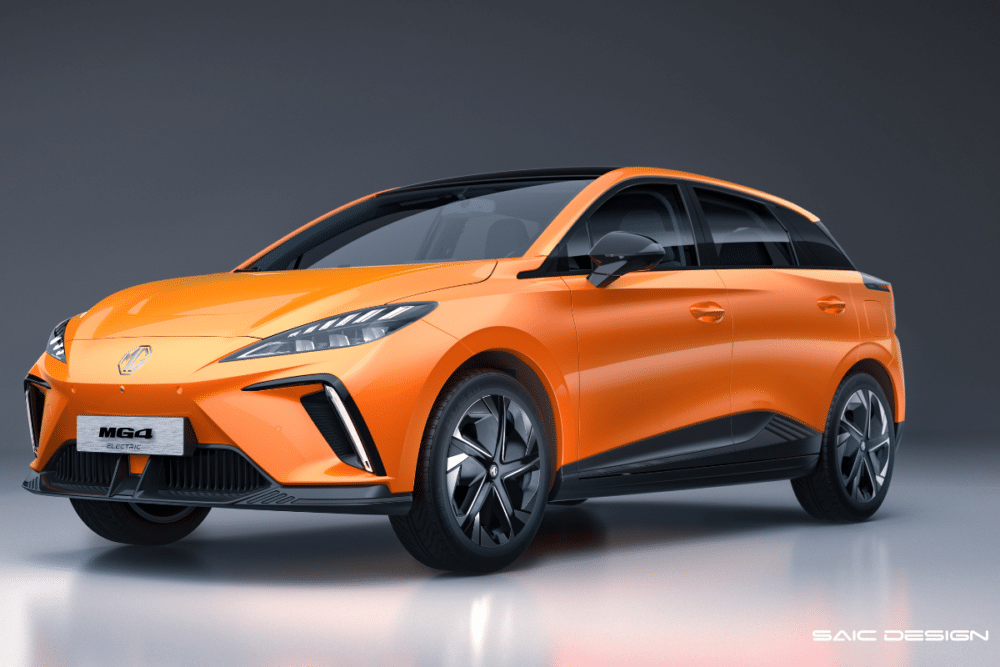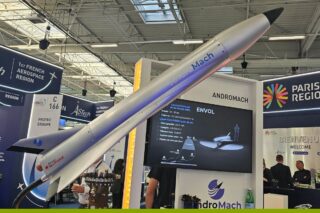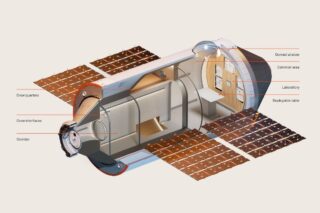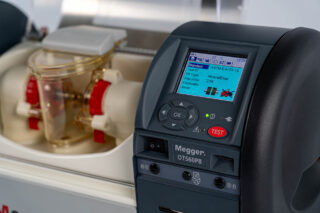As Chinese electric vehicle manufacturers expand their global reach, rising tensions over tariffs and trade policies are shaping the industry’s future. With the European Union and the United States considering higher import duties on Chinese-made EVs to protect domestic automakers, how will this impact the availability and pricing of Chinese models in 2025? This article explores the key players, upcoming models, and the potential effects of trade restrictions on China’s rapidly growing EV exports.
As China enters the year of the snake, it is almost impossible to discuss EV exports without also talking about tariffs and subsidies. In the case of Europe, the EU investigation into the alleged subsidies of the Chinese EV industry began in September 2023. This culminated in temporary tariffs being introduced in July last year, which have since been superseded by tariffs set to last for five years introduced on 30 October 2024.
After various investigations and deals the final levels were set at 7.8% for Tesla, 17% for BYD, 18.8%, for Geely and 35.3% for SAIC. These were the only companies to get individual ratings. Other companies that cooperated with the investigation are subject to 20.7%. Those that did not cooperate attract the top 35.3% rate. It should be remembered that these are in addition to a 10% tariff on all Chinese car imports to the economic zone.
What effect has this had on the number of Chinese EVs entering Europe and what electric models can we expect from Chinese producers in 2025?
Best-selling Chinese Brands in Europe
In 2024, according to Automotive market research JATO data, there were three Chinese-produced EVs in the top 20 best-selling EVs in Europe. In fact, all were within the first 8 positions. Despite Tesla having a factory in Germany, currently all Model 3 cars are imported from China. This was the second best-selling EV after the European-produced Model Y. This is why Tesla campaigned so hard to get a lower tariff than other producers.
The third best-selling EV in Europe last year also came from China, but again from the name it is hard to tell. Currently, the Volvo EX30 is only produced in China but in 2025, production is set to begin in Belgium, likely in part due to the tariffs.
Volvo is not the only international OEM to choose to open a production line outside China in response to tariffs. The first-generation BMW iX3 was only made in China but the forthcoming second-generation electric SUV will initially be made in BMW’s new Hungarian plant.
Although it secured eighth position, the MG 4 saw a 28% decline in sales compared to the year before. This shows how tariffs may be biting Chinese producers. In response, Chinese manufacturers are using varying means such as looking to localize production in the EU, targeting outlier markets not subject to the tariffs such as the UK, and changing the product mix to favor PHEV or ICE models.
READ ALSO
Localizing Production In Europe
Analyst Matthias Schmidt says that his figures at Schmidt Automotive Research show that after the tariffs were implemented BEVs were more skewed to sales in the UK:
“27% of all West European Chinese models across all fuels were delivered to the UK during the opening 11-months of 2024. When we look at BEVs that was roughly the same at 24% heading to the UK. That figure increased during November to 31% of all Chinese BEVs registered across Western Europe ending up on UK roads.”
Chinese brands have already started producing in Europe. The first was Leapmotor who through its joint venture with Stellantis produces the T03 small electric hatchback in Poland. Chery through a joint venture with Ebro-EV Motors has commenced production from knock-down kits. The deal reportedly covers three models and includes ICE, BEV and PHEV cars.
Localized production may receive a boost according to Klaus Paur, Managing Partner at MaLogic:
“Import tariffs could accelerate decisions to localize production, which is a logical next step after a successful import strategy anyway.”
BYD is already set to open its new plant in Hungary in 2025. This has a production capacity of 200,000 and is expected to build both BEV and PHEV models. But if Paur is right, others may well follow with such large plants.
Paur cautions that the fall in Chinese EVs sales in the EU in the second half of 2024 might be due to skewed sales:
“The decline in sales towards the end of 2024 may be due to a particularly strong sales offensive by Chinese EV brands in anticipation of the tariffs.”
Furthermore, the Chinese companies are not just trying to circumvent the regulations but are also actively fighting them. In January it was reported that BYD, Geely and SAIC were suing the EU over the tariffs.
In the near term, it has stumped growth of the Chinese brands in Europe. Schmidt notes that Chinese branded imports are stuck at accounting for about a tenth of the BEV market in the region.
In this context, what are we likely to see from some of the bigger players in 2025?
SAIC
Currently, the company is by far the largest Chinese player in Europe with MG sales of over 240,000. The electric MG 4 hatchback accounted for 51,775 of these. The company also sells electric MPVs under the Maxus brand.
The MG brand has a three-pronged approach to the European market consisting of hybrids, PHEVs and BEVs. It is known that SAIC is actively looking to open a plant in the zone.
During 2025 MG is expected to launch the ES5, a compact electric SUV, in Europe. At the 2024 Geneva Auto Show, SAIC showed the MG 9 and MG S9 cars which were rebadged from Rising models in China and these may also appear during 2025. Also, SAIC showed cars from the upmarket IM Motors brand, a collaboration with Chinese tech superpower Alibaba, and indicated that it intended to launch them in Europe.
BYD
China’s best-selling brand was relatively slow with exporting cars and first entered Europe via Norway in 2021. Entry to most markets has been since 2023 and initially sales were confined to the all-electric models.
With the introduction of tariffs, BYD has started selling PHEVs in the region as well. Schmidt says:
“BYD saw 25% of their West European new model deliveries in November accounted for by PHEVs. At the start of the year, it was zero.”
More PHEVs will likely be introduced during 2025, also expected are the all-electric Seagull and Sealion 07 models. Furthermore, BYD is set to launch its more upmarket Denza brand with likely the first cars being the D9 MPV, Z9 GT estate and N9 SUV.
XPeng
This start-up was one of the better-selling Chinese brands for EVs in Europe in 2024 with sales of 7277 across a sample of 14 countries. Currently, the brand’s G6 and G9 SUVs and P7 saloon are available in the region.
It’s reported that XPeng is looking to produce cars in Europe. 2025 should see the introduction of the P7+, and G7 models into the region.
READ ALSO
Geely
This company has no shortage of brands, including Volvo and its offshoot Polestar. Geely has also had some success with its Zeekr brand and in late 2024 launched the electric Lynk & Co 02 in Europe.
In 2025 the Geely EX5 SUV is expected to launch in the region. There will also be the Zeekr 7 GT estate, which is largely designed with Europe in mind, and the 7X SUV.
Nio
Perhaps the best-known Chinese EV start-up brand, Nio has high hopes for Europe. So far this has not paid off in sales which in 2024 were down by 32.4% at 1598 across a sample of 14 markets.
The brand which started selling its second-generation cars on the continent in 2022 is well-known for its battery-swapping technology and has up to five models on sale in certain European markets.
2025 will see the company launch in the UK and it is believed that one of the first cars to the islands will be the L60 from the company’s cheaper Onvo brand. Nio during the year is also set to launch its third brand, Firefly. Currently consisting of only one small electric hatchback it will take on the likes of Mini and the Fiat 500e, and it was specifically developed for Europe.
READ ALSO
Chery
Since 2023, Chery has become one of the biggest players in the Chinese market. Despite being the top exporting Chinese brand for over 20 years, sales are still in their early stages in Europe. Chery was expected in 2025 to have a major push in the region through brands such as Jaecoo. More upmarket EV and extended range EVs (EREV) were expected from the Exeed Exlantix marque. The Ebro-EV Motors tie up should help sales and could be a way around the tariffs for the company.
Schmidt said that with many brands there is a wait-and-see approach now to the European market and that Chery may change direction:
“Chery was due to enter the region with a large push from BEVs but the tariffs have caused them to pivot and offer more ICE models.”
Leapmotor
Despite sales in multiple markets and production in Poland, sales across 14 sampled markets were only 771 in 2024. Currently both the T03 and C10 models are on sale in Europe. These during 2025 are set to be joined by the B10 which debuted last year at the Paris Motor Show.
Other brands
There are a number of Chinese brands that either have limited existing sales in Europe or are looking to enter the market in 2025. Great Wall Motor, despite being an early entry with the Ora 03 is struggling for sales. Promises of the larger Ora 07 to follow up have yet to materialize. In the UK, the company is introducing the Haval Jolion Pro, a hybrid SUV, in an attempt to gain sales.
Hongqi launched its huge E-HS9 electric SUV in Norway in 2022. The brand is expected to have a big push in Europe with the Hongqi EH7 and EHS7 which both launched European pre-sales at last year’s Paris Motor Show.
Voyah also initially launched in Norway and currently en route to Europe by ship is the new Courage model which is Voyah’s first global model.
Chang’an brand Deepal claims it will sell its G318 model in Europe during 2025 but it will export the model from its Thailand factory in an effort to escape the tariffs.











